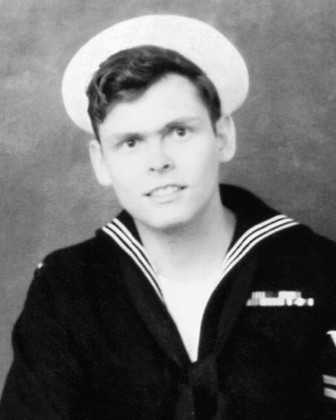Douglas Hegdahl - The Man Who Saved Hundreds
Born: 1946, Clark, South Dakota, U.S.A.
Douglas Hegdahl was a clever and courageous Navy sailor whose memory and bravery helped rescue and protect hundreds of American prisoners of war.
Douglas Hegdahl was born on September 3, 1946, in Clark, South Dakota. Growing up in a small town, he once joked that he had “never been east of [his] uncle’s Dairy Queen stand in Minnesota or west of [his] aunt’s house in Arizona.” When a Navy recruiter approached him in the 1960s, Douglas saw it as a chance to see the world. He accepted the opportunity and joined the United States Navy.
Douglas began his service in 1965, heading first to San Diego for boot camp. After training, he was assigned to the USS Canberra, a missile cruiser stationed in the Gulf of Tonkin, just off the coast of Vietnam. On April 6, 1967, disaster struck. A blast from the ship’s guns knocked Douglas overboard. No one noticed he was missing, and for two days the crew assumed he had been lost at sea. They even held a memorial service in his honor. But Douglas was very much alive. After floating for 12 hours with no life preserver, he was rescued by Cambodian fishermen and turned over to Vietnamese forces. Soon after, he was taken to the infamous Hỏa Lò Prison in Hanoi, known to American prisoners as the “Hanoi Hilton.”
The prison guards did not believe Douglas’s story about falling overboard. Instead, they were convinced he was a CIA spy. To protect himself and avoid giving away information, Douglas played a clever trick, he pretended to be completely illiterate and unintelligent. When his captors ordered him to write anti-American statements, he acted like he couldn’t read or write. Shocked at his supposed stupidity, they decided he was harmless. The guards even tried to teach him, but Douglas pretended he could not learn. Frustrated, they gave up and nicknamed him “the incredibly stupid one.” Because they thought he posed no threat, Douglas was given unusual freedom to move around the camp.
Douglas used this freedom to help his fellow prisoners and to secretly sabotage the Vietnamese. While sweeping the prison grounds, he once filled five army trucks’ gas tanks with dirt and leaves, making them useless. He also passed notes and shared information among prisoners. But his most remarkable act was memorizing the details of more than 250 American prisoners of war. Using the nursery rhyme Old MacDonald Had a Farm, Douglas created a memory system that helped him recall each prisoner’s name, the date they were captured, the date they arrived at the prison, and personal details about them.
Eventually, the Vietnamese government decided to release a few prisoners as a propaganda tool. Douglas did not want to leave, since the American prisoners had all agreed on a “No Go Home Early” pact. They promised they would all return home together. But his commanding officer ordered him to accept release, knowing Douglas had valuable information that could help many others. On August 5, 1969, after more than two years in captivity, Douglas was freed along with two other men.
Once back in the United States, Douglas’s memory proved to be life-saving. He shared the names and details of hundreds of prisoners who were still alive in Vietnam. Before his testimony, many of these men were thought to be dead. In 1970, Douglas spoke at the Paris Peace Talks, where the United States and North Vietnam were negotiating. There, he revealed the brutal treatment and torture methods used in the prison camps. He also described the poor conditions and confirmed the identities of the men still being held.
Douglas’s courage and memory had a global impact. Because he exposed the truth, the Vietnamese realized they could not hide their treatment of prisoners anymore. This pressured them to keep many American POWs alive until the war ended. His efforts saved hundreds of lives and showed how one man’s bravery and cleverness could change the outcome for so many others.
References:
Leepson, Marc. “Unlikely Story.” The VVA Veteran, a Publication of Vietnam Veterans of America, vvaveteran.org/44-6/44-6_Hegdahl.html.
“The Story of Vietnam Pow Doug Hegdahl.” Veterans Breakfast Club, 26 Jan. 2025, veteransbreakfastclub.org/the-story-of-vietnam-pow-doug-hegdahl.
Keywords:
Wartime, Justice, Courage, Perseverance, Freedom, Responsibility, Make a Difference, Take Risks for Others
Explore ARTEFFECT projects about this Unsung Hero:
Douglas Hegdahl Artworks
- Collections: Defender: Humility, Unsung Heroes, Wartime Unsung Heroes

